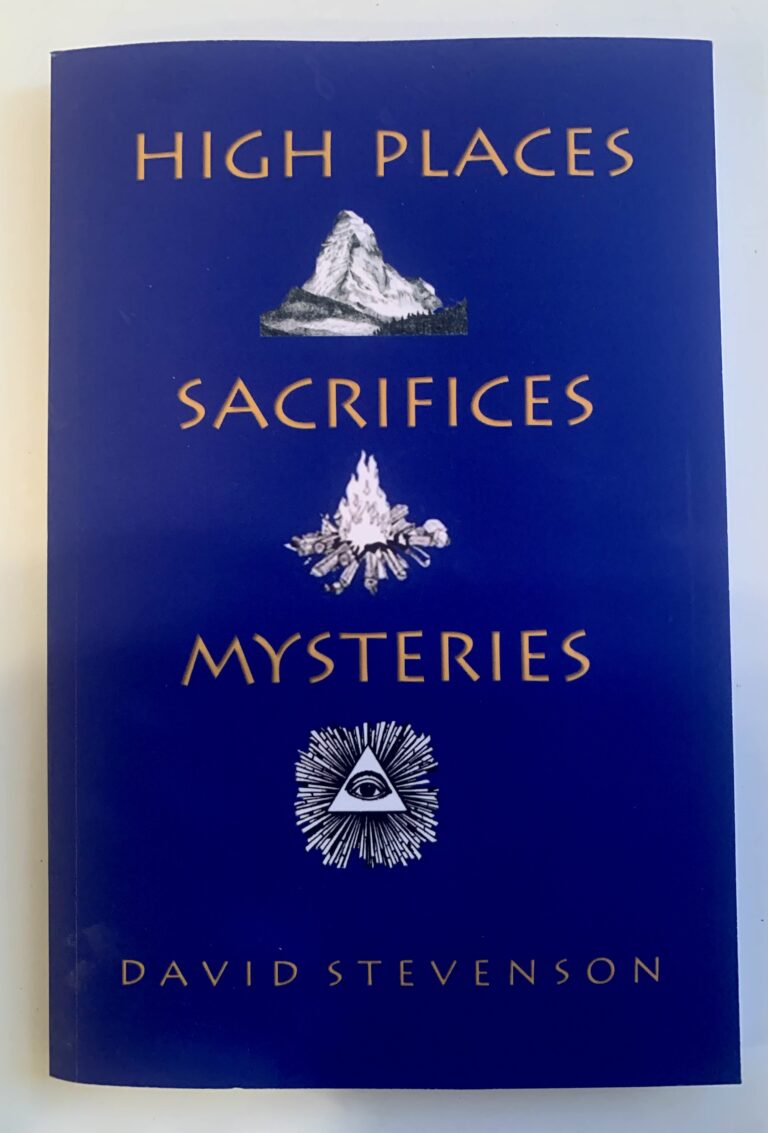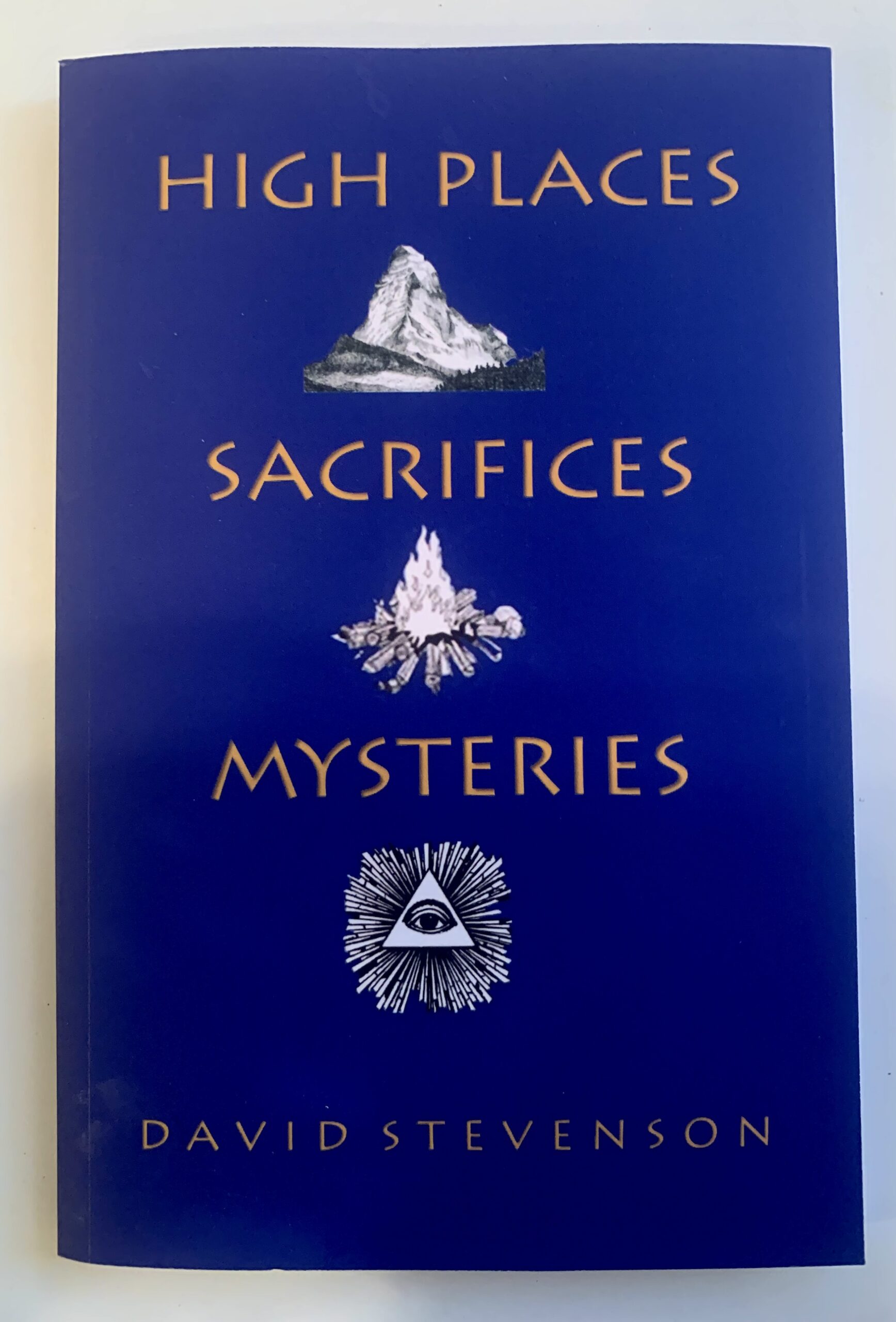In the acknowledgments to HIGH PLACES, SACRIFICES, MYSTERIES, his collection of lyric essays, author David Stevenson describes the book as a literary conversation with the works of the late postmodern novelist David Markson and photographer/essayist Moyra Davey. It’s an apt description; the collection is steeped in the spirit of Markson and the nonlinear, epigrammatic monologues of his Notecard Quartet novels, as well as the plainspoken intimacy of Davey’s diaristic meditations. Stevenson uses these formal influences, along with his experiences as a skier and mountaineer, to organize and investigate the central themes of his life: loss, aging, and the vagaries of fortune.
HIGH PLACES opens with a quote by Wittgenstein: “There are an enormous number of general propositions that count as certain for us. One such is that if someone’s arm is cut off it will not grow again.” The dry pragmatism of this observation percolates through each of the twenty-five short pieces in the collection, which circle topics ranging from the implacable brutality of nature (Powderless) and the mysteries of spirituality and luck (All the Fluttering Unknown Gods) to the color blue (A Late and Uninvited Correspondent Responds to Maggie Nelson’s Bluets). This stoic, matter-of-fact voice lends deadpan humor to Stevenson’s often pitch-black anecdotes, such as a vicious assault the author witnesses in a hotel parking lot in I was driving on a rural two-lane (“It occurs to me that the woman is a prostitute. I leave it in the cop’s hands.”) Or the author’s agonizing bout with kidney stones in Tipping Point:
I was curled up in the fetal position and I remember there was a television up in the corner of the room. It was turned off and in the screen I could see my colorless reflection: a shrunken man curled up in pain in a white hospital gown. I remember thinking, so there’s Nietzsche’s abyss. I remember thinking, “So this is how it ends.”
Death hangs heavily over these essays as Stevenson reflects on his mortality as a two-time cancer survivor (“I have tried to move forward, keeping in mind that every day is a gift”) and the accidental death, at the age of 22, of his son Macklin. Stevenson returns to thoughts of his son throughout the collection, circling ever closer to the emotional center of his pain as the literary allusions and historical anecdotes that pepper these essays begin to feel less like tangential observations and more like protective talismans. Still, Stevenson bears it all with optimism and grace: “There is not a day I don’t feel lucky to be alive. I try to explain this good luck to John. No way, he says, your luck is bad, that’s how you got cancer in the first place. My good luck is a luck he wants no part of. But I’ll take it.”
The meditative fragments that comprise HIGH PLACES, SACRIFICES, MYSTERIES are lucidly observed and dense with the kind of elliptical truth-telling that marks the work of author David Stevenson’s literary inspirations. There are no pat conclusions or comforting platitudes to be found here; the caprices of fate remain unknowable and bewildering, survivable only through humble submission to the mystery.
~Edward Sung for IndieReader


